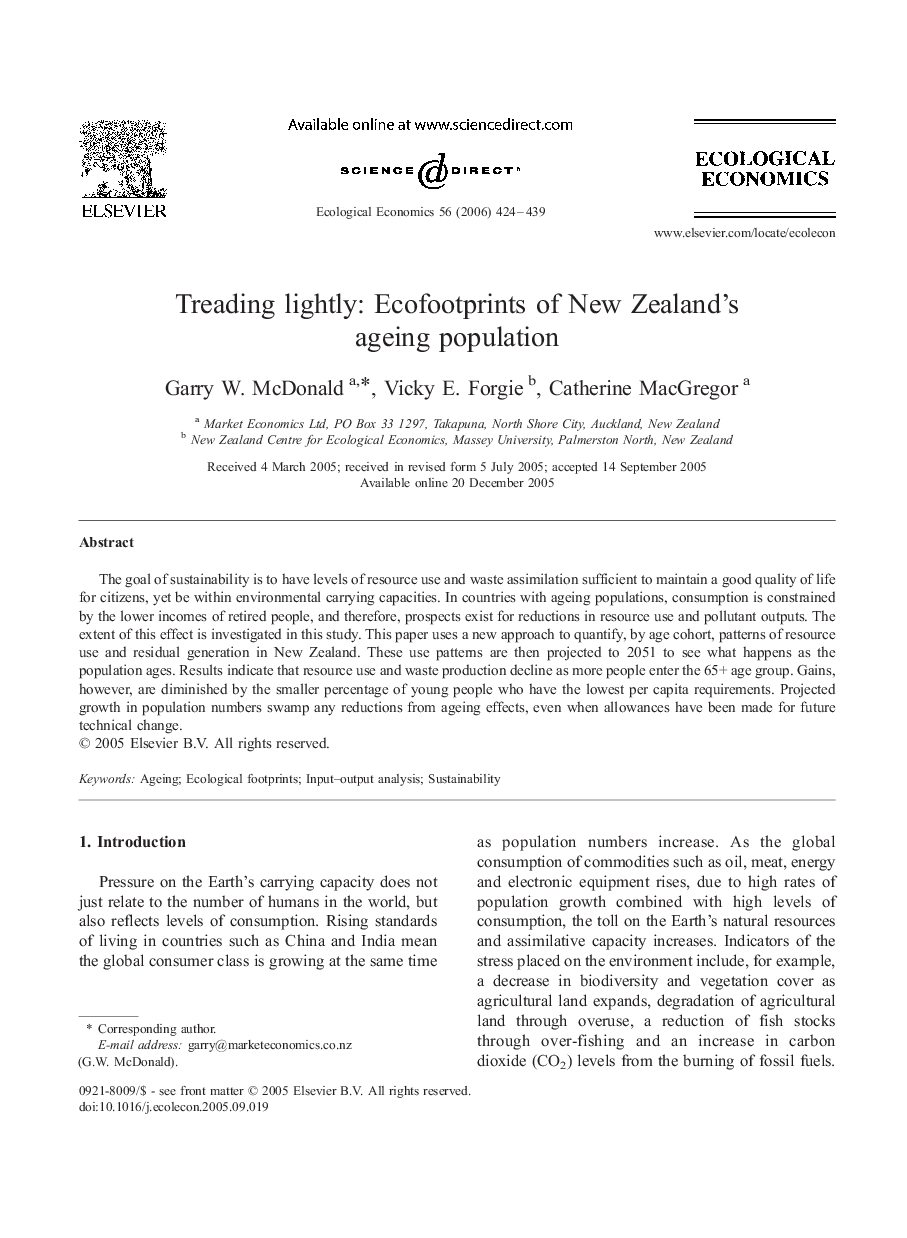| Article ID | Journal | Published Year | Pages | File Type |
|---|---|---|---|---|
| 5052384 | Ecological Economics | 2006 | 16 Pages |
Abstract
The goal of sustainability is to have levels of resource use and waste assimilation sufficient to maintain a good quality of life for citizens, yet be within environmental carrying capacities. In countries with ageing populations, consumption is constrained by the lower incomes of retired people, and therefore, prospects exist for reductions in resource use and pollutant outputs. The extent of this effect is investigated in this study. This paper uses a new approach to quantify, by age cohort, patterns of resource use and residual generation in New Zealand. These use patterns are then projected to 2051 to see what happens as the population ages. Results indicate that resource use and waste production decline as more people enter the 65+ age group. Gains, however, are diminished by the smaller percentage of young people who have the lowest per capita requirements. Projected growth in population numbers swamp any reductions from ageing effects, even when allowances have been made for future technical change.
Related Topics
Life Sciences
Agricultural and Biological Sciences
Ecology, Evolution, Behavior and Systematics
Authors
Garry W. McDonald, Vicky E. Forgie, Catherine MacGregor,
